Theorem on Friends and Strangers; Why in Any Party of Six People, Either at Least Three of Them Are Mutual Friends, or at Least Three of Them Are Mutual Strangers
Por um escritor misterioso
Descrição
Let’s take a look at Alice first. To her, each one of the other five (Bob, Carol, Dave, Ellen, and Frank) is either a friend or a stranger. Suppose Bob, Dave, and Frank are friends to Alice, and…

Madeline Dawsey--Modular Forms and Ramsey Theory.

Correlation, Causation, and Ramsey Theory
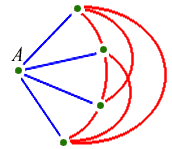
Friends and strangers
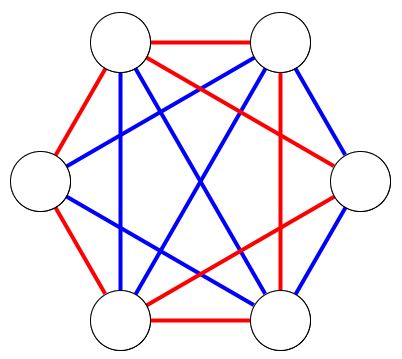
Party Acquaintances

Can 6 People Uncover a Mathematical Certainty? The Surprising Truth!

Ramsey's Theorem: Friends and Strangers

Theorem on Friends and Strangers. Ramsey Theory and Graham's Number, by Francesco Di Lallo

Ramsey's Theorem: Friends and Strangers
How to prove: at a party of six people either there are three mutual acquaintances or there are three mutual strangers - Quora
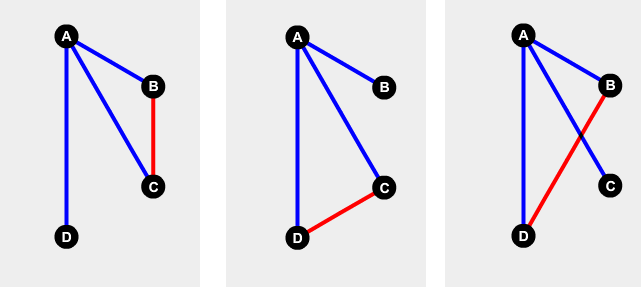
Theorem on Friends and Strangers. Ramsey Theory and Graham's Number, by Francesco Di Lallo
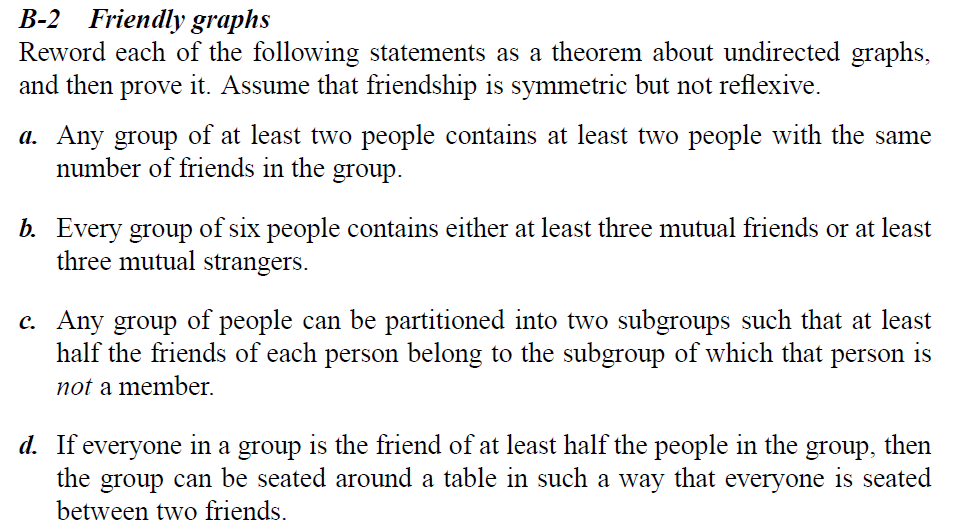
Solved B−2 Friendly graphs Reword each of the following
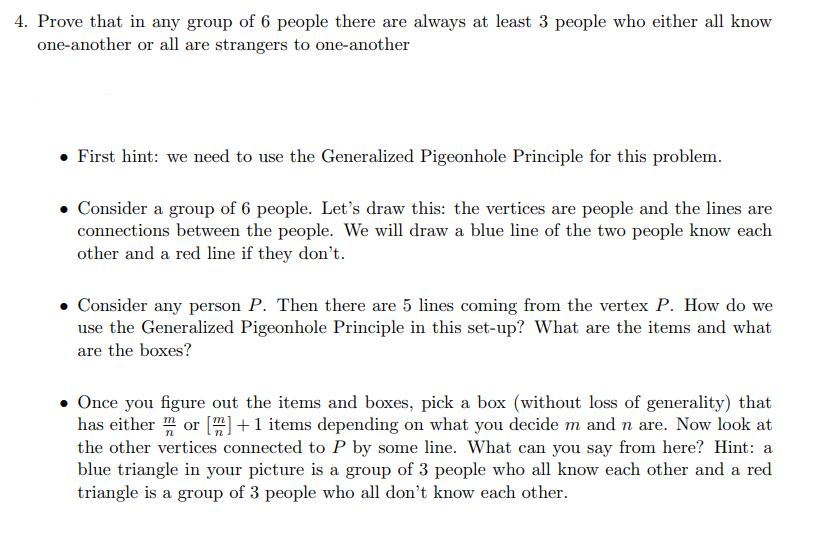
Solved 4. Prove that in any group of 6 people there are

The Friendship Theorem - You Always Have 3 Friends Or 3 Strangers At A Party

Can Math Prove You'll Always Be the Odd One Out At Parties?, by Mary Paskhaver, Geek Culture
de
por adulto (o preço varia de acordo com o tamanho do grupo)







